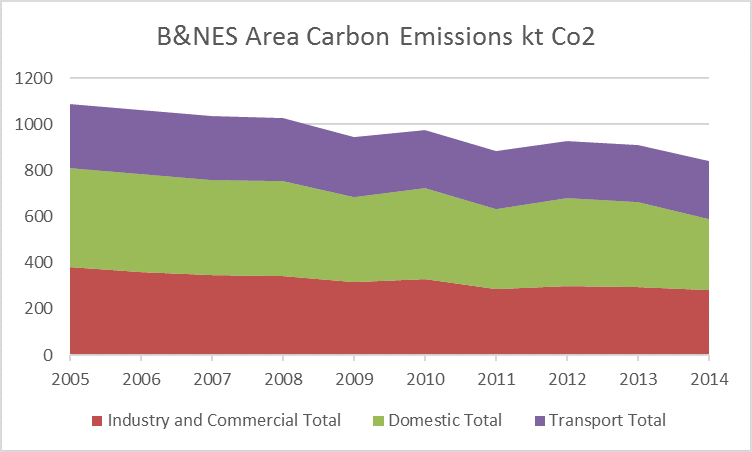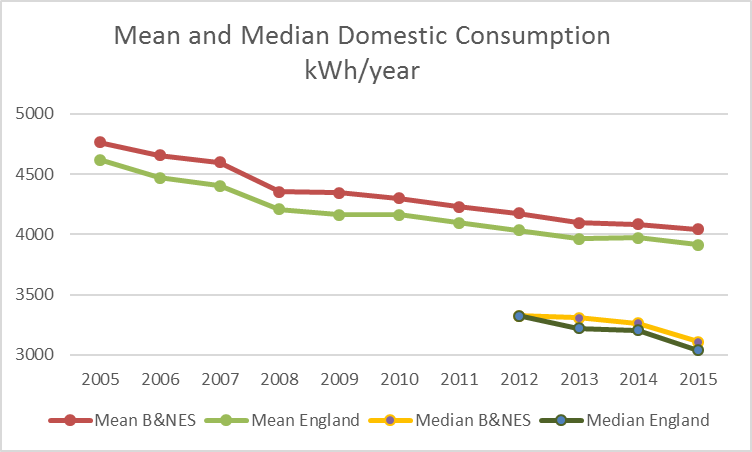This is a brief update to our previous analysis of B&NES’s carbon emissions from 2014; carbon emissions and electricity consumption continue to drop in the B&NES Local Authority area.
Carbon Emissions
According to government statistics carbon emissions dropped from 1102 kt CO2 in 2005 to 850 kt CO2 in 2015 a drop of 23%:

The largest reductions were from commercial (-28%), and domestic (-26%) consumption. Unfortunately transport which makes up 30% of overall emissions only dropped 9%.
Electricity Consumption
B&NES, in line with the rest of the UK continues to see a reduction in domestic electricity consumption, largely as a result of EU policies to encourage consumers to buy more efficient appliances and lighting:

B&NES’s average (mean or median) consumption per household is slightly higher than the UK average, but has continued to drop at about 2% per year over the last decade (source).
We predict a significant further drop in emissions as a result of the rapidly decarbonising UK electricity grid driven by the retirement of a number of coal power stations, and a significant increase in wind and solar renewable capacity. UK grid carbon emissions which were around 530g CO2/kWh 5 years ago to around 260g CO2/kWh today.
Our top tips for reducing your carbon emissions are:
- Avoid flying
- Replace all your halogen lighting with LEDs (borrow our try before you buy kit from the library)
- Use a washing line rather than a tumble drier
- When replacing appliance try to buy the most efficient (A+++) you can afford
- Walk and cycle as much as possible (it’s better for your health despite Bath’s pollution problems, and reduces pollution for others)
- Switch to a green energy supplier
- Be aware of how much electricity and gas you use compared with the average (3200 kwh/year, and 14,000 kWh/year respectively) and aim to reduce your consumption if you are above average